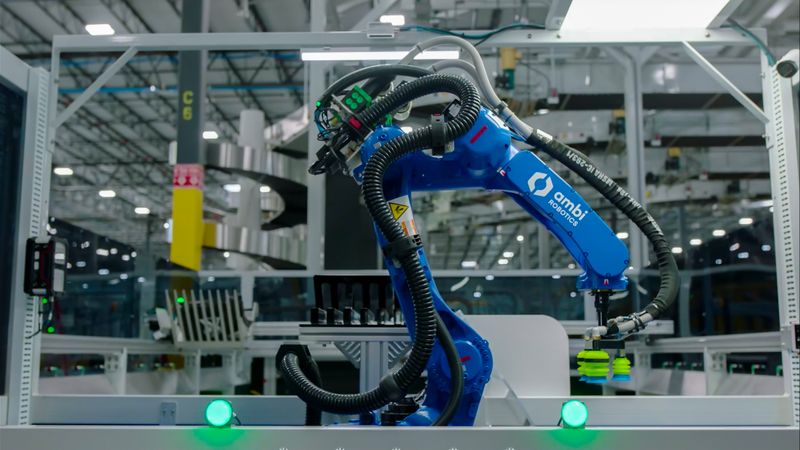OSM is one of a handful of U.S. Postal Service-approved shipping and returns consolidators. These companies handle customers’ volume and send them to Postal Service facilities, such as destination delivery units, for final-mile delivery by the agency.
“Because USPS vehicles deliver along predetermined routes, retailers can use this existing infrastructure to handle last-mile delivery faster and more economically,” Kelley said.
The company, which targets lightweight e-commerce packages, invests in infrastructure like destination delivery unit sorters to boost facility throughput and efficiency. Another example is its recent commercial partnership with Ambi Robotics, in which the robotics firm will deploy its AmbiSort A-Series system at OSM locations in Atlanta, Chicago and Las Vegas.
Ambi Robotics’ AI-powered robotic parcel sorting system helps companies like OSM boost parcel sortation speeds to last-mile delivery providers, according to a March news release. It can adapt to pick and sort a variety of parcel types, including polybags, flats and boxes. One operator can oversee three to four robotic systems, it added.
“We’re in an automation mode this year,” Kelley said.
Improved automation can help companies boost throughput and handle more volume even in difficult hiring environments, which has been the case throughout the COVID-19 pandemic.
“I think that everybody’s fighting for the same person, so that’s been more of a struggle than anything else for us,” Kelley said.
While improving automation is the focus for OSM this year, next year the company is considering expanding its roster of facilities. OSM currently has regional hubs in Chicago, Atlanta, Las Vegas, Dallas and York, Pennsylvania. Kelley floated Ohio and Salt Lake City, Utah, as possible locations for new facilities.
OSM has taken a more measured approach with its expansion plans than its competitors, according to Kelley. Other companies added dozens of warehouses as demand surged during the COVID-19 pandemic, but package volumes have since shrunk and left many firms with excess capacity, Kelley said.
“Being light as a company as we are and being a little bit more mobile is an advantage, and that’s been helping us grow also, because we can be more competitive when it comes to the cost factor, because we obviously have less overhead,” Kelley said.




